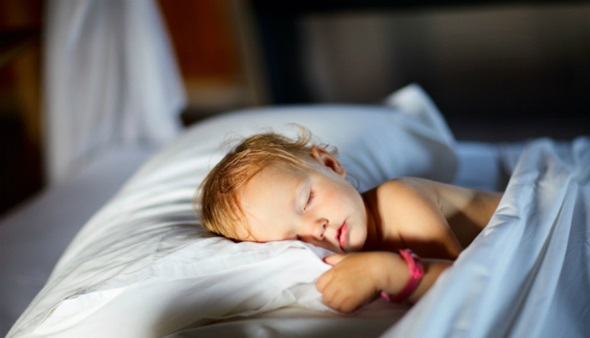As children grow, their bodies and brains experience major changes, with sleep playing a crucial role in facilitating these processes.

Children who consistently follow good sleep hygiene practices often enjoy better mental and physical health, enhanced attention and behavior, improved learning and memory, more stable emotional regulation, and a higher overall quality of life.
Sleep is a fundamental aspect of a healthy lifestyle, especially for children. While nutrition and physical activity are commonly highlighted, the importance of sleep should not be overlooked. It plays a critical role in supporting a child’s growth, cognitive development, and emotional well-being.
Physical Growth and Development
Sleep is essential for physical growth and development in children. During deep sleep, the body releases up to 75% of the growth hormone, crucial for tissue repair, muscle growth, and overall development. This hormone also fortifies the immune system, helping children fight off illnesses. Insufficient sleep can disrupt these processes, potentially leading to stunted growth and a compromised immune system, making children more prone to infections.
Additionally, sleep impacts metabolism and weight. Research indicates that children who lack adequate sleep are at a higher risk for obesity. Sleep deprivation can disrupt the balance of hormones that regulate hunger, leading to increased cravings for unhealthy foods. To support physical health, it’s important for children to get the recommended 9 hours of sleep each night.
Cognitive Development and Academic Performance
Sleep is vital for cognitive development. It’s during sleep that the brain consolidates memories, processes information, and strengthens neural connections, which are all crucial for learning and academic performance. Studies show that children who consistently get enough sleep tend to perform better academically, with improved grades and test scores.
Adequate sleep enhances cognitive functions like attention, concentration, problem-solving, and creativity. For instance, during REM (Rapid Eye Movement) sleep, the brain is highly active, organizing and processing information from the day. This helps with memory retention and the ability to learn new concepts. Well-rested children are better able to focus, absorb information, and tackle complex problems, giving them an academic edge.
Conversely, sleep deprivation can impair cognitive abilities, leading to difficulties in learning and memory. It can reduce attention span, decrease alertness, and slow reaction times, which negatively impacts school performance and daily activities.
Emotional Regulation and Behavioral Health
Beyond physical and cognitive development, sleep is crucial for emotional and behavioral health. Adequate sleep helps regulate emotions, reducing mood swings, irritability, and anxiety. Children who get enough sleep are better equipped to manage stress, exhibit emotional stability, and interact socially.
In contrast, sleep deprivation can exacerbate emotional and behavioral issues. Research shows that insufficient sleep increases the likelihood of hyperactivity, impulsivity, and behavioral problems, potentially heightening the risk of developing symptoms similar to attention deficit hyperactivity disorder (ADHD) by up to 25%. This can lead to difficulties in school, strained relationships, and challenges in daily life.
Additionally, poor sleep can impact mental health, increasing the risk of anxiety and depression. The emotional effects of sleep deprivation can be significant, affecting mood, behavior, and overall quality of life.
Improving Sleep Hygiene
To promote healthy sleep, consider these strategies:
- Environment: Create a comfortable, dark, cool, and quiet bedroom. Removing electronic devices before bedtime can also help.
- Screens: Avoid screens for at least two hours before bed, as blue light can interfere with melatonin production and disrupt sleep cycles.
- Diet: Provide a balanced diet throughout the day and avoid caffeine, large meals, or sugary snacks before bedtime. Ensure adequate iron intake, which is linked to better sleep.
- Physical Activity: Encourage daily physical activity to improve overall health and support better sleep. However, avoid intense exercise close to bedtime.
By maintaining good sleep hygiene, children can experience enhanced mental and physical health, better attention, behavior, learning, and overall quality of life. If sleep issues persist, consulting a pediatrician or sleep specialist may be necessary.












